Citizen Science: Project FeederWatch -- Count #02 Report w/Original Photos [100% SP]
Citizen science is a great way to involve children and adults in discovery and contribute to scientific research and conservation. Project FeederWatch through Cornell University is one way to get involved in citizen science. You can learn more at the Project FeederWatch website.
I typically watch birds on Saturday and Sunday. This is my report for 19-20 November 2016.
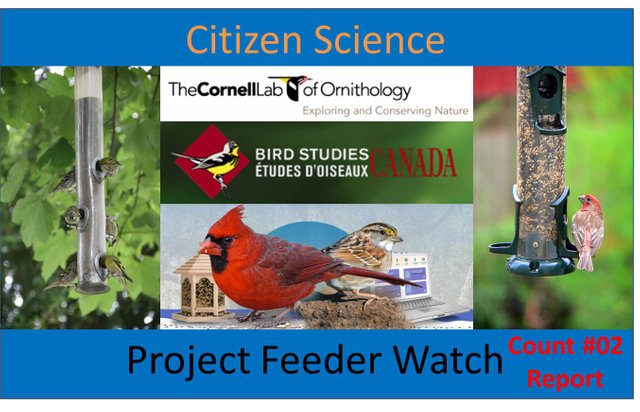
Created Using MS PowerPoint and Images from Project FeederWatch
November 2016
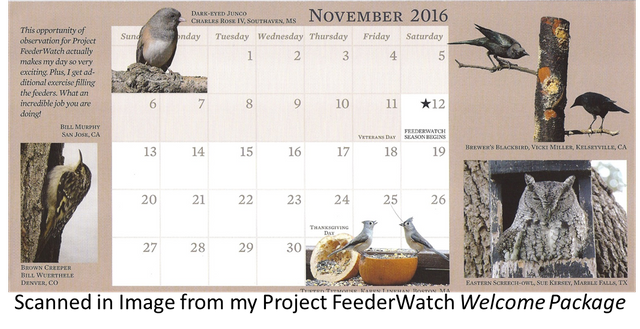
The 2016-2017 season goes through 7 April 2017.
Bird Watching Notes
Before the Two-Day Count Period
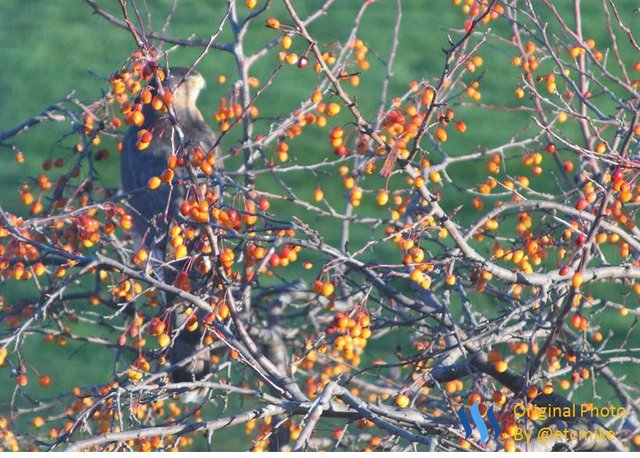
Original Photo
The Sharp-Shinned Hawk is still stalking my feeders. The hawk has still not found a meal at my feeders yet. However, the birds are very skittish because of this hawk.
You can learn more about the Sharp-Shinned Hawk on the Audubon webpage.
Saturday
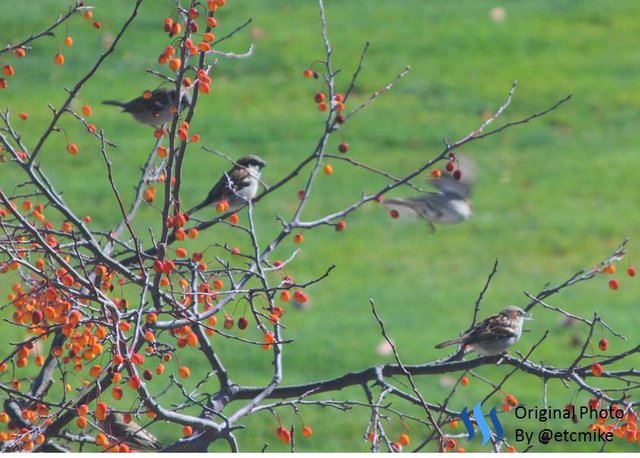
Original Photo
Last weekend I was surprised by the lack of Sparrows at my feeders. A flock of Sparrows visited my feeders this weekend. Sparrows are common during the fall and winter thoughout most of the United States.
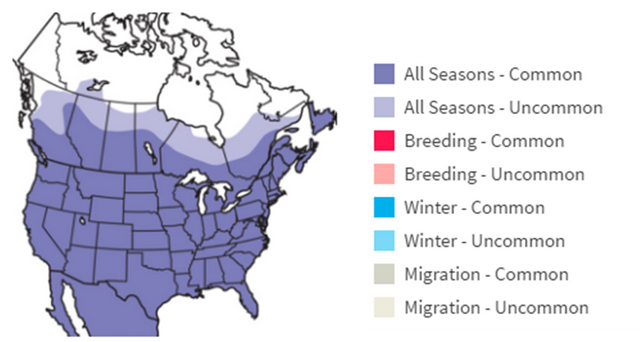
Image Source
More information on Sparrows can be found in the Audubon Field Guide.
Sunday
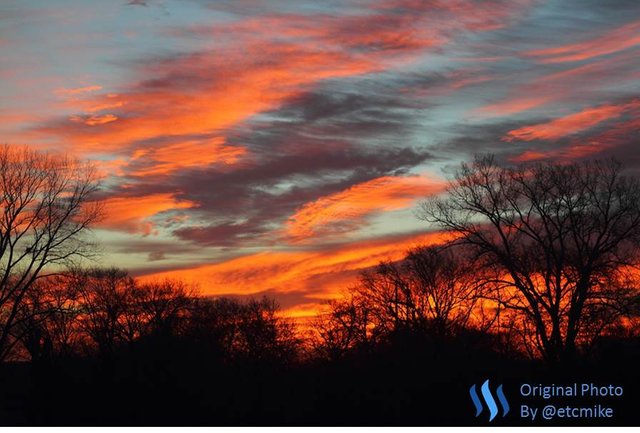
Original Photo
Sunday morning started out with a brilliant sunrise.
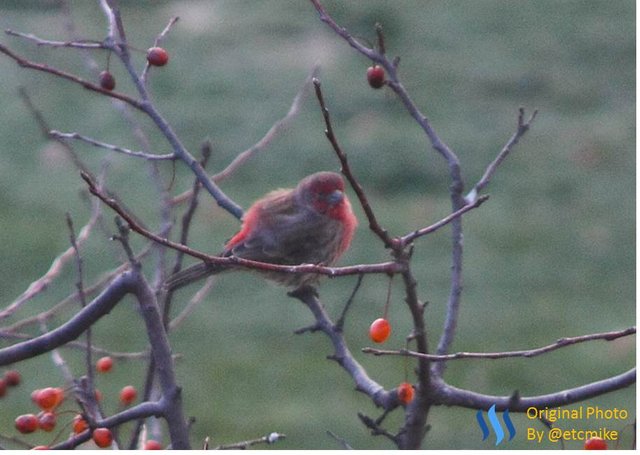
Original Photo
Sunday morning I was able to photograph this House Finch. House Finches are also common during the fall and winter thoughout most of the United States.
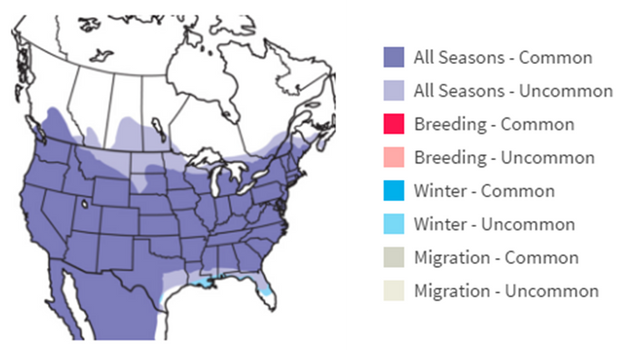
Image Source
More information on House Finches can be found in the Audubon Field Guide.
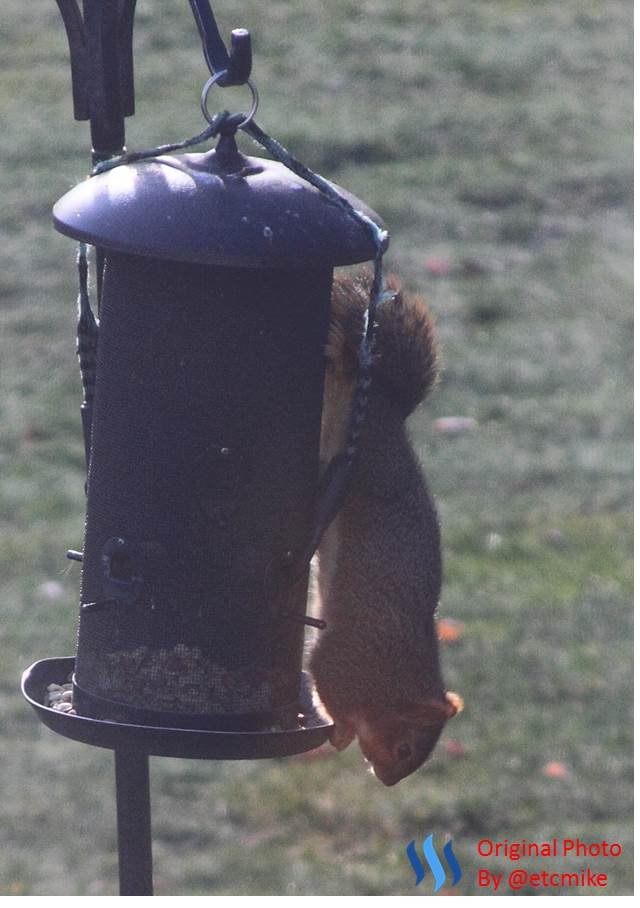
Original Photo
The squirrels in my area were once again feasting on the peanuts in my feeder. This squirrel ran off another squirrel before he started eating peanuts out of the feeder upside down.
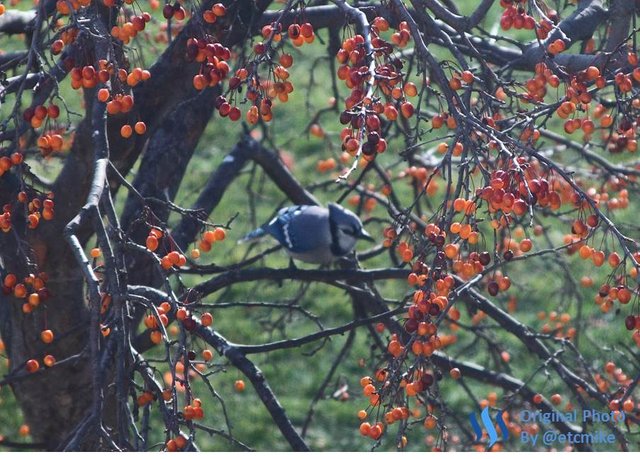
Original Photo
This Blue Jay posed for a picture. Blue Jays are common to this part of Nebraska throughout the year.
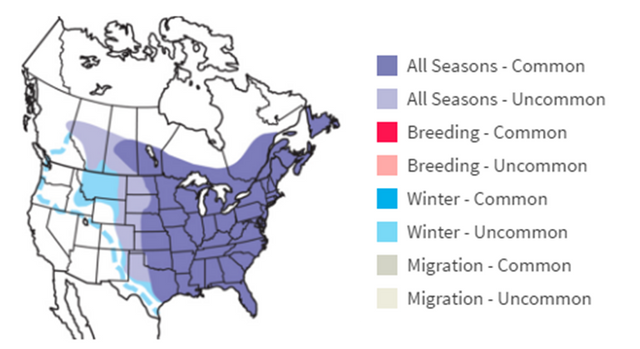
Image Source
More information on Blue Jays can be found in the Audubon Field Guide.
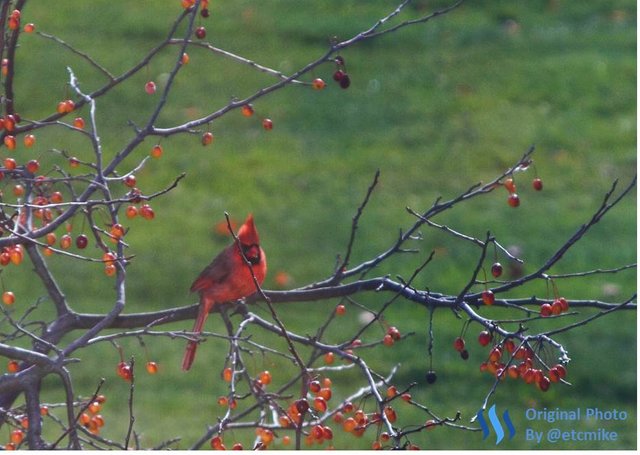
Original Photo
This Northern Cardinal also took a moment to pose for a picture. Northern Cardinals are also common to this part of Nebraska throughout the year.
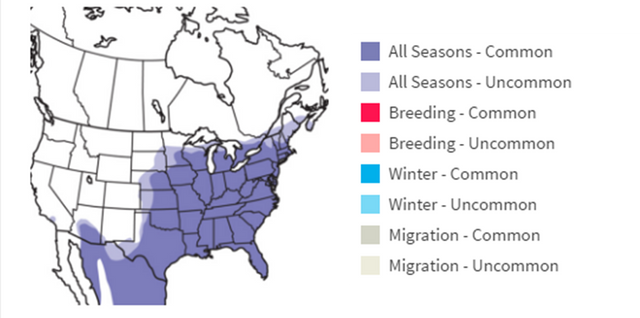
Image Source
More information on Northern Cardinals can be found in the Audubon Field Guide.
I also unexpectedly saw an American Robin at my feeder site. I would have thought all the Robins had headed south by now.
Bird Counts
Counts for Current Period
My bird counts for the two-day period 19-20 November 2016.
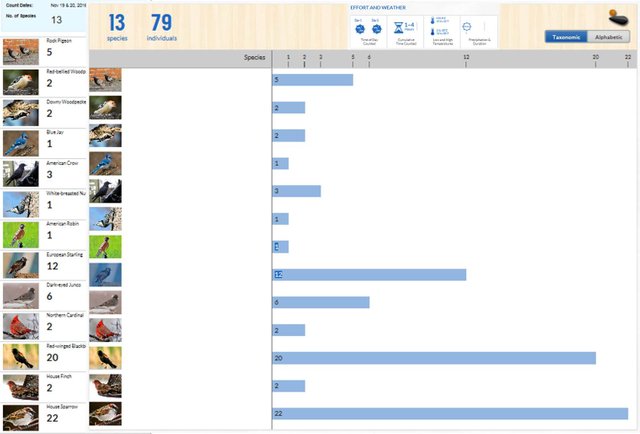
Snapshot from Project FeederWatch Bird Count Summary
Summary of Counts this Season
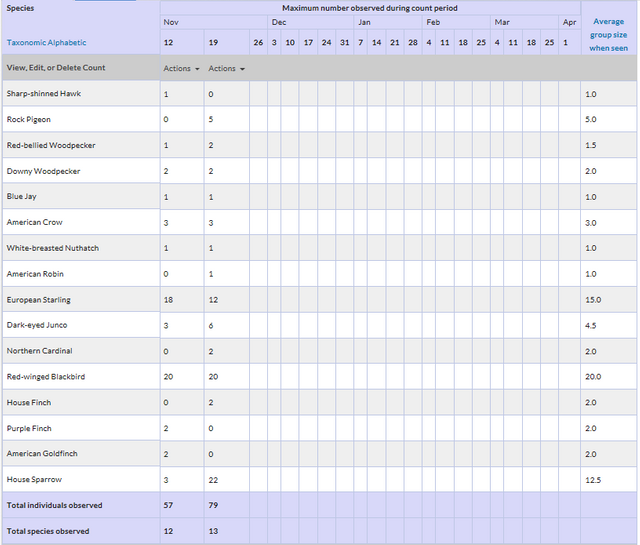
Snapshot from Project FeederWatch Bird Count Summary
Previous Project FeederWatch Post
Citizen Science: Project FeederWatch -- Count #01
Use of Original Photos
I used the SteemIt icon in my photo credit to indicate these photographs were originally posted on SteemIt.
The photographs in this post are free to be used by anyone as long as the photo credit is left on the photographs.
Thank You!

Don't let that Fox Squirrel clean you out of bird seed, lol! It looks like winter is not really there in Nebraska yet. Would you rather have no snowstorms and fewer birds at your feeder - or more birds and a snowstorm? ; )
It will be a late start for snow storms this year in eastern Nebraska. During a snow storm the bird counts do drop, just like they do during rain storms. Snow storms typically only last about a day and the next day is usually bright and cold. The next day after a snow storm it seems like all the birds show up. Over a two day count period it tends to even out.
As for myself, I am perfectly happy with lows in the 20's and no snow. That is how late fall here in eastern Nebraska is starting out this year. The first couple snow falls are usually snow an inch or two then gone the next day. The ground has not frozen here yet. Hence the green grass in the pictures. Without a frozen ground the snow does not tend to stick around.
One more interesting fact is that, as expected, I go through a lot more bird seed and peanuts when it is cold than when it is warm. I typically stock pile a few more 50lb bags of seed when it gets cold.
I hope the cold weather stays away for a good while longer. I am not just ready yet for the days below zero (Fahrenheit) .
Steem on,
Mike
At least those cold days keep the insect populations down for next summer's farming and gardening. Happy bird watching!